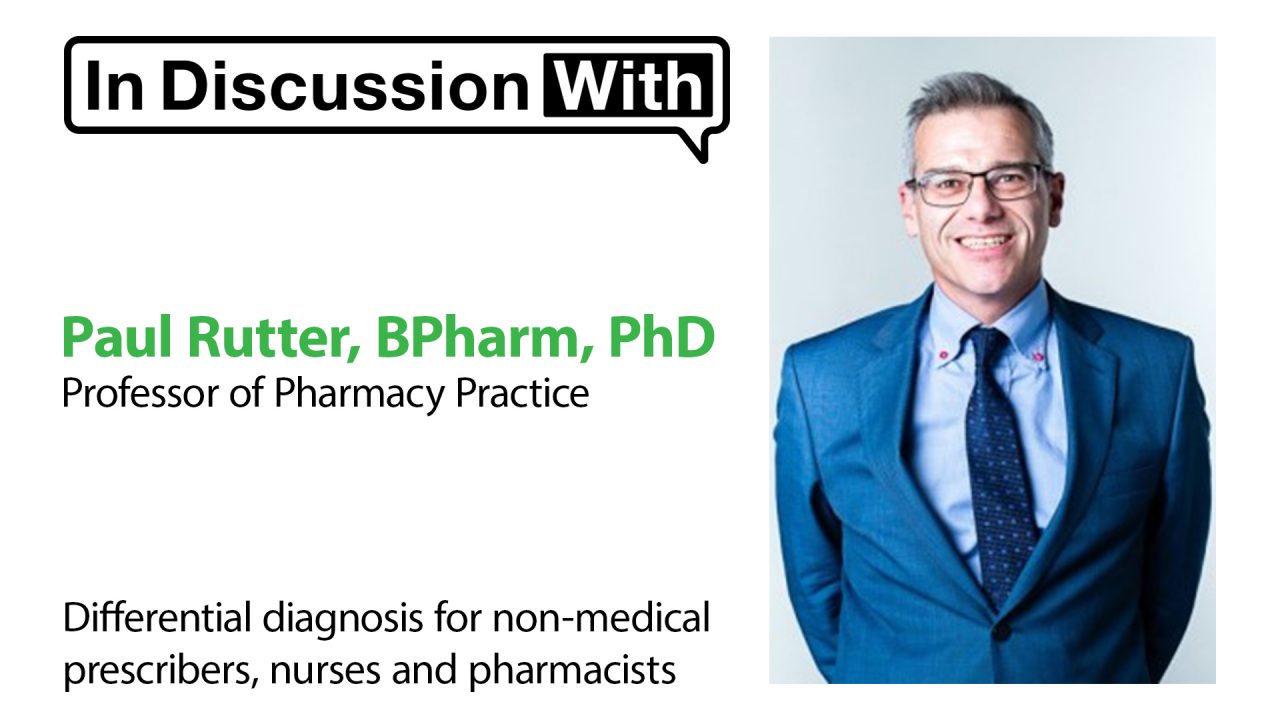Advertisment
Differential diagnosis for non-medical prescribers, nurses and pharmacists

Paul Rutter is Professor of Pharmacy Practice at Portsmouth University and the author of a best-selling textbook on symptoms, diagnosis and treatment in community pharmacy. His new book on differential diagnosis promises to support non-medical prescribing and “fill a gap”. In this series of short videos, he explains why clinical reasoning and skills in differential diagnosis will contribute to the further development of community pharmacy practice.
Why community pharmacists need skills in differential diagnosis
By 2026 all pharmacy graduates will have an independent prescribing qualification and there will be a increasing emphasis on clinical activities in community pharmacy. Professor Rutter’s new book uses a case-study format and emphasises the importance of clinical reasoning to reach a diagnosis.
The WWHAM mnemonic is no longer adequate to guide consultations, he explains.
WWHAM stands for:
- Who: Who is the medicine for?
- What: What are the symptoms?
- How long: How long have the symptoms been present?
- Action: What action has been taken?
- Medication: Are you taking any other medication?
How clinical reasoning underpins effective consultations
Professor Rutter’s new book follows a case study format because this is an effective way to “contextualise facts and figures and knowledge into something more ‘real life’”, he says. For example, a symptom such as cough would be approached very differently in a 75-year-old man from a 5-year-old child. The objective of the consultation is to sift out from the list of possible causes of cough those that are most likely in the patient in question. Clinical reasoning is flexible and responsive and allows the practitioner to take a long list of conditions and narrow it down into a smaller number of possibilities in a logical way.
Clinical reasoning – the challenge of moving from novice to expert
The Pharmacy First scheme allows the pharmacist access to medicines which otherwise would be prescription only medicines (POMs), in specific situations. Clinical reasoning is important in establishing a diagnosis which is the first step in the Pharmacy First service. Professor Rutter envisages that the Pharmacy First service will be extended in future as part of the movement to make pharmacy a more clinical profession. This will call for more expertise in clinical reasoning and feedback on pharmacists’ performance will be essential to raise their “ceiling of competence”, he explains.
In future, community pharmacists’ clinical role will be extended further and the traditional dispensing role will diminish. In addition, “I think the digital side of pharmacy will increase and that will hopefully allow greater communication between pharmacy and general practice services so they’re better integrated”, he says.
About Paul Rutter
Paul Rutter is Professor of Pharmacy Practice at Portsmouth University. His main area of interest is differential diagnosis of minor conditions for pharmacists and his academic teaching deals mainly with this topic. He is the author of the textbook, Symptoms, Diagnosis and Treatment in Community Pharmacy, now in its fifth edition. His new book, Differential diagnosis for non-medical prescribers, nurses and pharmacists: A case-based approach, was published in August 2024.
Read and watch the full series on our website or on YouTube.






